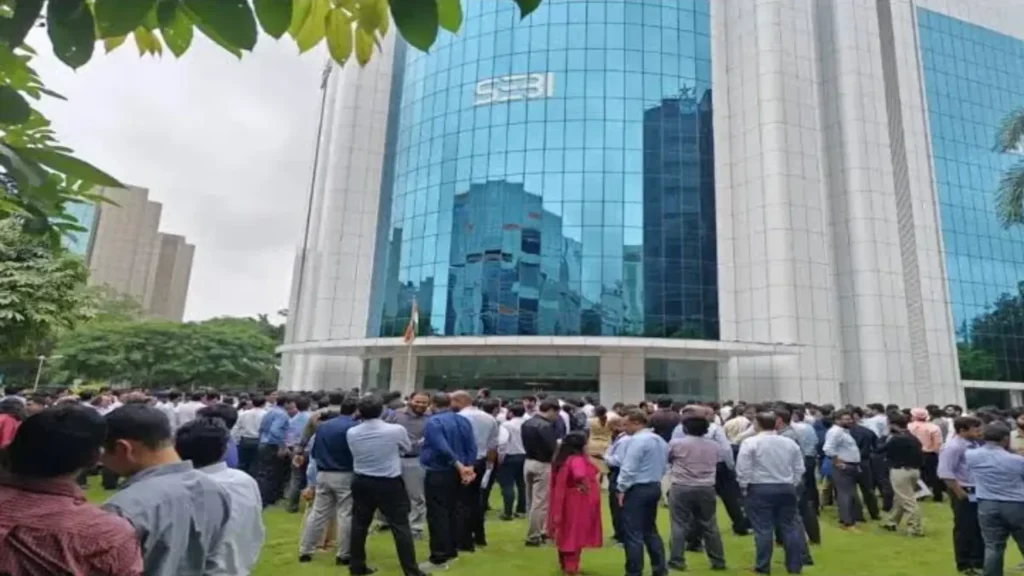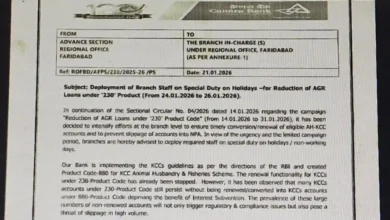SEBI Employees Protest Over Toxic Work Culture and Demand Chairperson’s Resignation

On September 5, around 200 employees of the Securities and Exchange Board of India (SEBI) staged a protest at the regulator’s headquarters in Mumbai. The demonstration was in response to a recent press release from SEBI that labeled their earlier complaints about an unprofessional work environment as being “misguided by external elements.” The employees gathered at 11 a.m. and engaged in a ‘silent protest’ for more than an hour.



What Led to the Protest?
The employees had previously sent a letter to the Finance Ministry, expressing concerns about a stressful and toxic work environment at SEBI. They claimed there was “immense pressure” to meet targets, creating a negative atmosphere. SEBI’s press release dismissed these claims, stating that the accusations were misplaced and influenced by outside forces.
Employees have voiced their unhappiness with SEBI’s leadership, citing several key issues:
- Unfair Allowances: The allowances given to SEBI employees have not been updated to match those given to officers at the Reserve Bank of India (RBI). This disparity has caused frustration among SEBI staff.
- New Compliance System: A new system for uploading Key Result Areas (KRAs) has been implemented. Employees have been told that their allowances could be stopped if they don’t comply, which has added to their dissatisfaction.
- Toxic Work Culture: SEBI Employees have alleged toxic work culture at the organization. Employees say that there is immense pressure for targets and seniors are harassing junior staff.
Employees’ Reaction to SEBI’s Response
The protesting employees expressed their dissatisfaction with SEBI’s handling of the issue. An internal message circulated among the staff described the protest as a show of “dissent and unity” against what they considered “arm-twisting” by SEBI’s top management. Their immediate demands included the withdrawal of the press release and the resignation of SEBI’s chairperson for allegedly spreading falsehoods about the employees. The protest lasted for a few hours before the employees dispersed and returned to work.
SEBI’s Stand on the Issue
In its defense, SEBI argued that the employees’ concerns were linked to demands for higher rental allowances and an effort to prevent misreporting of performance targets. The regulator also hinted that “outside elements” were instigating employees to lower the standards of performance and accountability expected at SEBI, though no specific details were provided about these external forces.
Allegations Against SEBI Chairperson Madhabi Puri Buch
In the midst of this protest, SEBI Chairperson Madhabi Puri Buch has faced separate allegations of conflict of interest. US-based short-seller Hindenburg Research, along with opposition political parties, has accused Buch of having past investments in offshore funds also used by the Adani Group, which is currently under investigation by SEBI.
Buch has strongly denied these claims. Additionally, the Congress party alleged that she continued to earn income from ICICI Bank, where she had previously worked, even after taking her position at SEBI. Both ICICI Bank and Buch have denied these allegations.
SEBI’s Commitment to Transparency
In its press release, SEBI emphasized that it remains “committed to serving the complex market ecosystem with a high level of transparency and responsiveness.” Despite the protest and ongoing allegations, SEBI continues to assert its commitment to upholding high standards of performance and accountability within the organization.
